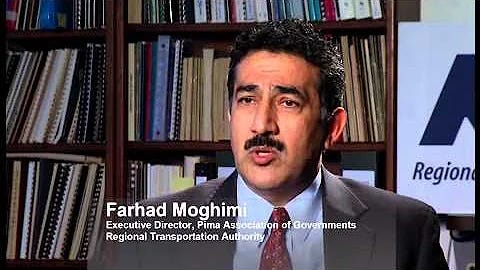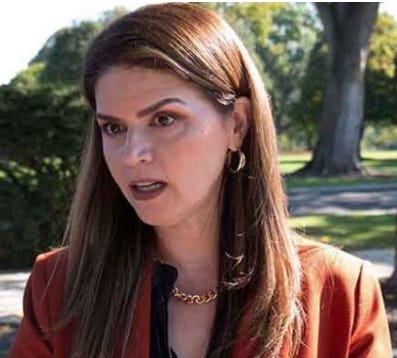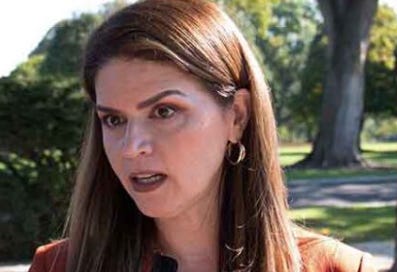🔥 "YOUR HATRED OF US": Tucson Mayor Romero Explodes at PAG Director as $143M in Community Projects Hang in Balance
$70M in Uncommitted PAG/RTA Funds Left Unused While Working-Class Neighborhoods Wait for Infrastructure
😽 Keepin’ It Simple Summary for Younger Readers
👧🏾✊🏾👦🏾
🚗 The 🏛️ PAG/RTA meeting 💥 exploded when 🗣️ Mayor Romero accused 👨💼 Director Moghimi of 😠 "hating" Tucson while 💰 $143M in projects remain unfunded 🛑 Someone tried to review his work but 📄 important documents mysteriously disappeared 🗳️ Council voted 7-1 for special meeting to possibly 👋 replace him 🛣️ Working-class neighborhoods still waiting for promised roads
🗝️ Takeaways
💸 An estimated $143 million in promised RTA-1 projects remain unfunded, while approximately $70 million in uncommitted RTA funds sit unused
🗣️ Mayor Romero directly accused Executive Director Moghimi of having "hatred" toward Tucson and "obfuscating" rather than solving problems
📝 Statutory citations necessary for a performance review mysteriously "disappeared" from meeting documents, nearly preventing accountability
🗳️ The PAG Regional Council voted 7-1 to schedule a joint PAG/RTA session to evaluate the Executive Director's performance and consider "appointment of an interim director"
🧮 City of Tucson has identified about $145 million in potential cost savings through scope changes to make projects financially viable
🏗️ After 19 years, many RTA-1 projects approved by voters in 2006 remain incomplete, predominantly in Tucson's diverse neighborhoods
POWER STRUGGLE EXPOSED: How PAG/RTA Leadership Blocked Accountability While $143 Million in Projects Hang in Balance
In a meeting room on Monday, the facade of regional cooperation crumbled as years of simmering resentment and procedural manipulation finally erupted into open conflict.
The April 21 meeting of the Pima Association of Governments (PAG) and Regional Transportation Authority (RTA) revealed what many community advocates have long suspected: a deeply entrenched power structure deliberately obstructing accountability while predominantly working-class neighborhoods wait for promised infrastructure improvements that may never come.
As the fluorescent lights hummed overhead and officials shuffled papers anxiously, the region's most powerful transportation body unraveled in real time. What followed was nothing short of a public revelation of the systemic dysfunction that has left $143 million in voter-approved projects—predominantly in Tucson's most diverse neighborhoods—unfunded and in limbo.
"Your Hatred of Us": The Mask Comes Off


Tucson Mayor Regina Romero has sat on the RTA board for six years, fighting for information, transparency, and follow-through on projects promised to voters nearly two decades ago. On Monday, that frustration finally boiled over in a moment of unfiltered truth-telling that exposed the raw power dynamics at play.
"I am tired of having an executive director who pits each one of us against each other," Romero declared, her voice rising with barely contained anger. "And you're not just affecting the City of Tucson with your hatred of us, Mr. Moghimi. You are affecting every single jurisdiction on this table. You are affecting the possibility of bringing in millions of dollars for economic development and growth in our region."
The room fell silent. No one had ever so directly confronted the executive director about what appears to be a pattern of obstruction targeting the region's largest city.
This isn't just bureaucratic infighting—it's about who gets safe streets, functioning transit, and the dignity of infrastructure that wealthier, whiter neighborhoods take for granted.
Moghimi, who serves as executive director of both PAG and RTA, sat expressionless as Romero continued, "I am outraged that as the PAG Chair, I had to fight as a mayor of the largest jurisdiction in this region, that I had to fight to be able to step up to be the PAG Chair."
Chairman Joe Winfield attempted to cut her off, declaring her comments "out of order." This procedural maneuver perfectly illustrated Romero's point about power being wielded to silence certain voices.
The $143 Million Question: Where Did the Money Go?
At the core of this conflict is a $143 million shortfall in funding for RTA-1 projects—infrastructure improvements voters approved in 2006 that remain incomplete nearly 20 years later. Most of these unfunded projects are in the City of Tucson, leaving the city's residents waiting for promised improvements while RTA funds appear to be sitting unused.
"The memo states that $68.25 million in RTA funding is excluded from the available revenues to complete the RTA program," Romero pointed out, her frustration palpable. "That all in all is almost $70 million that is not programmed and can be used for the $143 million shortfall in RTA-1."
When pressed on why these millions in available funds aren't being applied to the shortfall, Moghimi offered a series of technical explanations that did little to answer the fundamental question: Why is money sitting unused while promised projects remain unfunded?
Let's be clear about what's happening here: While technical language about "expenditure limitations" and "overlap funding" is thrown around, communities—often predominantly Latino and working-class—continue waiting for the safe streets, functioning intersections, and multimodal infrastructure they were promised nearly two decades ago.
Sam Credio, Tucson's Transportation Director, presented potential solutions through scope changes that could save approximately $145 million, effectively closing the gap. These included modifications to Grant Road and other projects that would preserve their core functionality while reducing costs.
Yet rather than embracing these practical solutions, the meeting descended into a bureaucratic labyrinth of blame-shifting and procedural obstacles.
The Phantom Parcels: Ghost Money That Never Materializes
In one of the meeting's most revealing exchanges, Moghimi continued to claim that "remnant parcels" from RTA projects could be sold to help close the funding gap—a claim he's been making for over a year and a half with nothing to show for it.
"We've had this discussion before about remnant parcels," Romero noted, clearly exasperated. "And the RTA board has not received a report from the executive director about what remnant parcels he's talking about and what the possible funds are that the RTA could sell those parcels for."
Despite paying a contractor named Tierra Right of Way for over a year to identify these parcels, nothing concrete has materialized. When Romero stated that Tucson had already provided the requested information but never received a follow-up from the contractor, Moghimi attempted to shift blame to the city.
"I resent the Executive Director pretending as though the City of Tucson is not doing its job," Romero fired back. "Our Department of Transportation and Mobility already provided the requested information to both the RTA Executive Director and Tierra... We have not gotten a call from a contractor that we are paying to do this."
Supervisor Matt Heinz cut through the bureaucratic fog with characteristic directness: "I am concerned, though, that we're talking, we're spending a lot of minutes on what seems to be one or maybe two percent potentially of the shortfall that we're looking at... This isn't going to fix a third of it. It's going to fix maybe a percent or half a percent or two."
In other words, this endless discussion about phantom parcels worth a fraction of what's needed serves primarily as a distraction from the reality: millions in uncommitted RTA funds could be addressing the shortfall right now.
The Procedural Coup: How Accountability Was Nearly Derailed
Perhaps the most revealing segment of the meeting came during the PAG Regional Council portion, when newly appointed Pima County Supervisor Matt Heinz attempted to initiate a performance evaluation of Executive Director Moghimi—only to discover that procedural obstacles had mysteriously materialized overnight.
"This was the most difficult thing to agendaize in my career, and I don't know why," Heinz declared, visibly frustrated after explaining the convoluted process required to get the item on the agenda. He revealed that the statutory reference required for an executive session had "disappeared from the template" just for this meeting—a striking coincidence given the item's sensitivity.
When legal counsel Thomas Benavidez claimed there were multiple reasons the review couldn't proceed—from missing statutory language to contract provisions requiring a joint PAG/RTA session—Heinz cut to the chase: "I believe this has been intentionally obfuscated frankly."
The newly appointed supervisor pointed out that when Moghimi's performance review was conducted in April 2024, none of these procedural obstacles existed—they materialized precisely when accountability was being sought.
This is how power insulates itself from accountability—through arcane procedural maneuvers, missing citations, and sudden "discovery" of contractual provisions that conveniently protect the status quo.
Clearly frustrated by the legal counsel's shifting explanations, Mayor Romero demanded clarity: "You're the attorney, Mr. Benavidez. You should know this by heart. How can we call for a special meeting of the RTA? I know for a fact that the bylaws for the PAG say that the chair can call a special meeting of the PAG within 48 hours of calling it. So you tell us."
When Benavidez claimed he didn't "believe there is anything in writing that says how that gets done," Romero's frustration boiled over: "That's not an acceptable response. You don't think, show us. You could go online and try to find the RTA bylaws and how we put together the meetings for the RTA. We could give you a 15-minute break, and we can find a solution today."
Indigenous Representation: Quieted Voices
In the midst of this power struggle, Chairman Verlon Jose of the Tohono O'odham Nation raised crucial questions about Indigenous representation on the Citizens’ Accountability for Regional Transportation (CART) committee—questions that revealed another dimension of the RTA's accountability problems.
"I see an individual on there who is no longer employed or holding a position within the tribe that concerns us," Chairman Jose noted, discovering that a representative supposedly speaking for the Nation hadn't been reporting back to tribal leadership.
"If they have been meeting, they’ve not reported to the Tohono O'odham," Jose continued, highlighting how indigenous voices have been marginalized in the transportation planning process. "I'm wondering... none of these ever got addressed."
This isn't surprising in a system where accountability seems optional and transparency is treated as an inconvenience rather than a responsibility to the public. When even sovereign tribal nations can't get clear information about their own representation, what hope do everyday residents have?
The Vote: A Glimmer of Accountability
After heated debate and multiple procedural objections, the council ultimately passed a motion 7-1 to schedule a joint PAG/RTA session within 7-10 days specifically to review the Executive Director's performance, with options for "appointment of an interim director" if necessary.
The lopsided vote revealed a growing consensus that the region's transportation governance is fundamentally broken and that the status quo is no longer acceptable.
Mayor Murphy of Sahuarita, explaining his vote, captured the gravity of the situation: "We've seen these conversations continue to tear down this organization farther now than we've ever been from getting to a solution both regionally and throughout the RTA. And I think we should have the discussion when we're in a position where we can have it."
Even Supervisor Heinz, who had been on the board for just two months, acknowledged the depth of dysfunction: "I've only been here two months, and I can feel that there are some things that need to be discussed."
A Path Forward: Community Engagement as the Solution
While Monday's meeting exposed the dysfunction at the heart of our regional transportation governance, it also created an opening for genuine accountability and community-driven solutions.
The upcoming joint PAG/RTA performance review meeting represents a rare opportunity for public intervention in a system that often operates in the shadows. By attending this meeting and making your voice heard, you can help ensure that the $143 million in promised projects don't remain in limbo for another decade.
The RTA was created to serve all residents of Pima County, not just those in certain jurisdictions or neighborhoods. It's time for leadership to embrace that mission rather than undermine it through procedural games and jurisdictional infighting.
The fate of millions in infrastructure funding that could transform our region's most underserved communities now hangs in the balance. The question is: Will you be there to demand accountability?
Help Three Sonorans continue bringing you this essential coverage of local government and transportation issues that mainstream media often ignores.
What do you think: Is the RTA's leadership structure fundamentally broken, or can it be reformed through greater accountability? And how should Tucson voters respond if the promised RTA-1 projects from 2006 remain unfunded? Share your thoughts in the comments below.
Quotes:
"I feel we've lost and wasted six years because in my view, the executive director has failed to provide the RTA board with an RTA next plan that not only has the full support of the board, but also the community." — Mayor Romero, confronting Executive Director Moghimi about years of delays
"You are not just affecting the city of Tucson with your hatred of us, Mr. Moghimi. You are affecting every single jurisdiction on this table." — Mayor Romero, directly accusing the Executive Director of bias against Tucson
"This was the most difficult thing to agendaize in my career, and I don't know why... I believe this has been intentionally obfuscated frankly." — Supervisor Matt Heinz, describing apparent procedural obstacles to reviewing the Executive Director's performance
"I resent the Executive Director pretending as though the City of Tucson is not doing its job... We have not gotten a call from a contractor that we are paying to do this." — Mayor Romero, responding to implications that Tucson hadn't provided requested information
"I am a yes, because I also believe that we've, I mean, I've only been here two months and I can feel that there's some things that need to be discussed." — Matt Heinz, voting for the performance review, indicating problems are evident even to newcomers
Key People and Memorable Quotes:
Mayor Regina Romero (Tucson): "The city of Tucson has been quieted, pushed, ignored, and ridiculed for far too long, both on this board and the RTA board. And we are ready to stop that." As PAG Chair and Tucson Mayor, she led the confrontation over funding disparities and procedural manipulation.
Farhad Moghimi (Executive Director of PAG/RTA): Didn't directly respond to accusations of bias but repeatedly claimed processes were being followed properly. The subject of the contested performance review.
Supervisor Matt Heinz (Pima County): "I do understand this stuff. I get open meeting law. I've been a legislator and now a supervisor, and this was incredibly frustratingly difficult to get agendized." A newly appointed member who quickly identified the apparent obstruction.
Thomas Benavidez (Legal Counsel): When questioned why a statutory citation had disappeared from meeting documents: "I have no idea. I noticed that this morning." His shifting legal explanations contributed to procedural confusion.
Chairman Verlon Jose (Tohono O'odham Nation): "I was looking at that list and I'm wondering why none of these ever got addressed." Raised concerns about tribal representation and the lack of communication from supposed tribal representatives.
Sam Credio (Tucson Transportation Director): Presented potential cost-saving solutions totaling approximately $145 million through scope changes to make projects financially viable.
Mayor Murphy (Sahuarita): "Unless I think we as a collective group have a comfort level in how we complete RTA 1, it's the only chance, in my opinion, that we can look the voters in the face." Emphasized the importance of completing promised projects.
Ted Maxwell (State Transportation Board representative): "You're telling me none of these have been submitted... It'd make it a lot easier for everyone to get you what you need if we didn't list all these things again." Expressed frustration with unclear information requests.
Have a scoop or a story you want us to follow up on? Send us a message!





